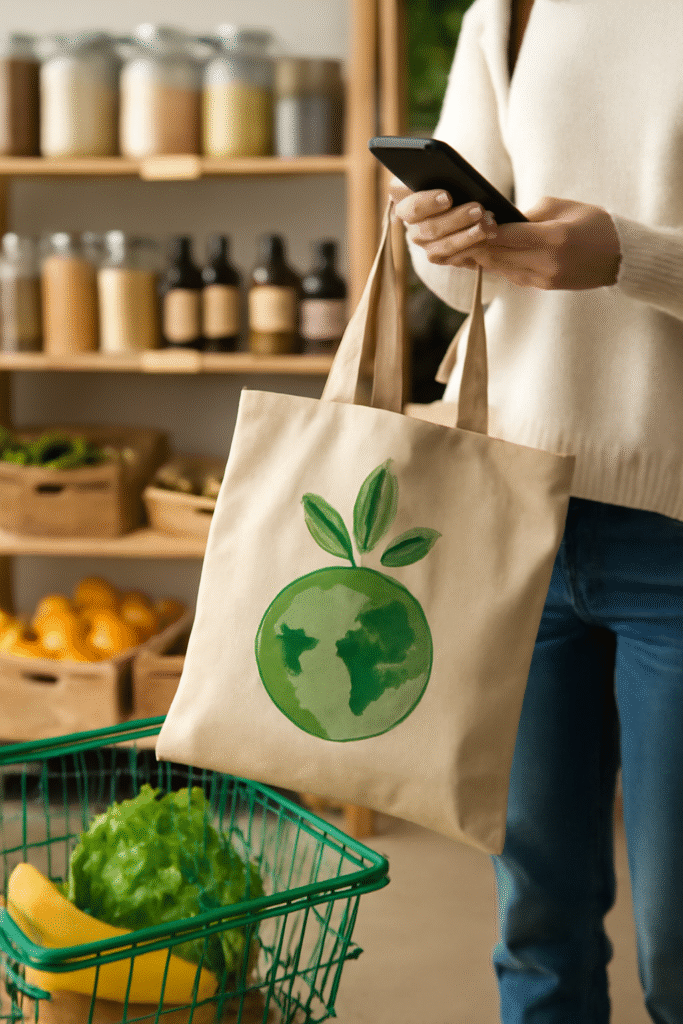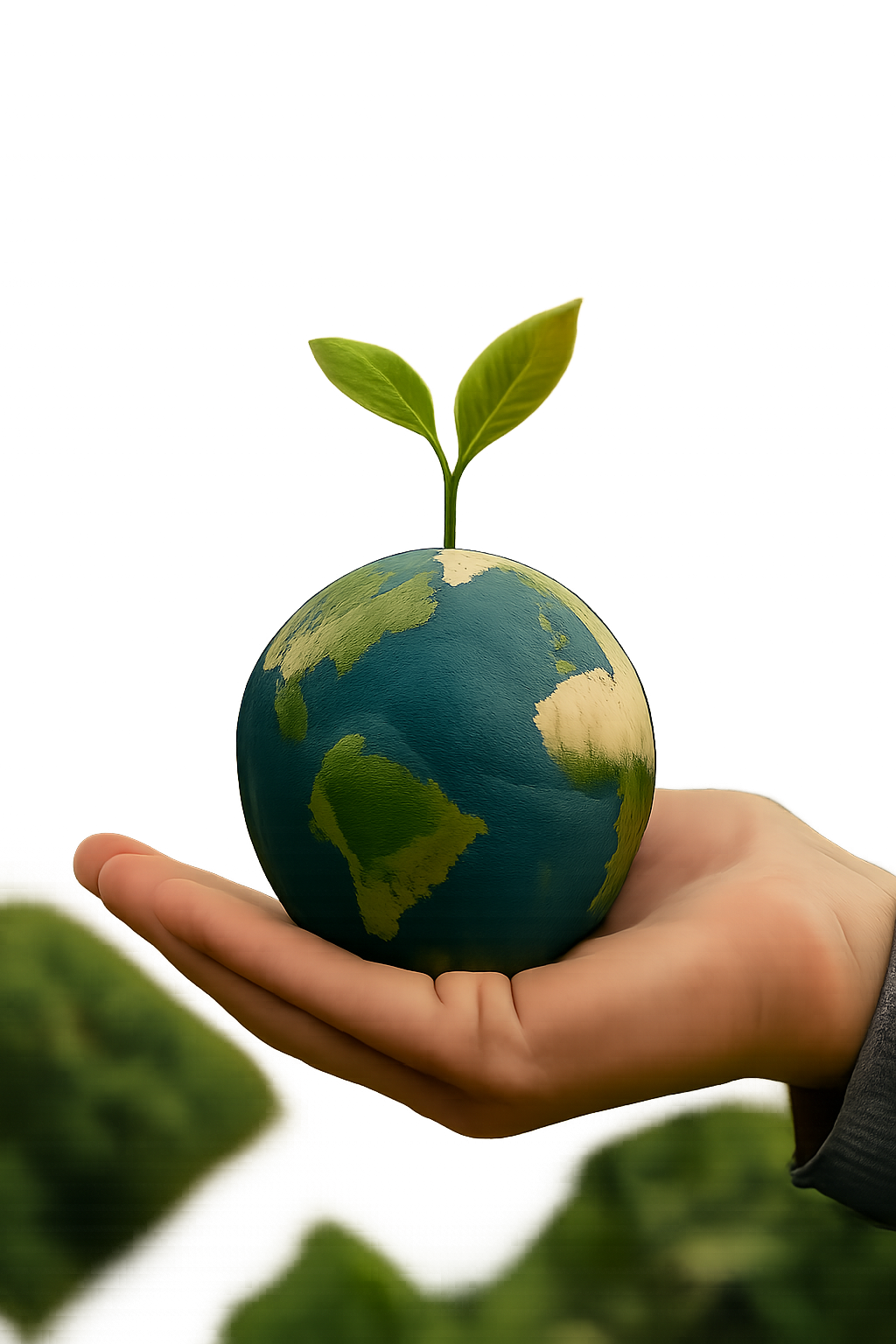Cada escolha é um voto no mundo que você quer viver.
🌱 Uma Nova Era de Consciência e Responsabilidade
Chegamos a um ponto de virada na história: nunca foi tão fácil comprar — e nunca foi tão urgente repensar o que consumimos.
O que antes era uma preocupação de nicho, restrita a ambientalistas, tornou-se uma necessidade coletiva. O consumo consciente agora é um imperativo social, econômico e tecnológico.
Cada compra que fazemos gera impactos que atravessam oceanos e continentes — influenciando recursos naturais, trabalho justo e o clima global.
Consumir de forma consciente não significa rejeitar o conforto, mas redefini-lo.
Mas o que exatamente mudou? Como o consumo consciente deixou de ser um ideal abstrato e passou a fazer parte das nossas decisões diárias?
1. A Ascensão do Consumidor Digital

🛒 Uma Nova Geração que Questiona Tudo
Os consumidores de hoje são informados, ativos e conectados. Eles pesquisam, comparam, leem avaliações e não aceitam meias-verdades.
Com aplicativos e sites que revelam desde a pegada de carbono de um produto até a origem da mão de obra, a busca por transparência passou a moldar o ato de comprar.
A inteligência artificial e o blockchain estão transformando a confiança. Hoje, a classificação ética de um produto pode ser acessada em segundos. Algoritmos ajudam a identificar falsas práticas de “greenwashing”, permitindo que as pessoas recompensem marcas alinhadas aos seus valores.
Pesquisas globais recentes indicam que mais de 70% dos consumidores preferem marcas com responsabilidade social e ambiental.
As redes sociais amplificam tanto a responsabilidade quanto a vulnerabilidade: um único ato antiético pode se espalhar mais rápido do que qualquer campanha publicitária.
O consumidor deixou de ser passivo; tornou-se investigador, crítico e colaborador no mercado da ética.
2. Da Acumulação à Experiência
✨ Possuir Menos, Viver Mais
O materialismo está perdendo o brilho. O antigo hábito de comprar por comprar dá lugar, pouco a pouco, à busca por significado. Em vez de acumular bens, as pessoas investem em experiências, serviços compartilhados e bem-estar.
O consumo consciente não é sobre privação — é sobre libertação do excesso.
Plataformas de aluguel de roupas e aplicativos de revenda estão substituindo a moda rápida.
Assinaturas de serviços compartilhados — de espaços de coworking a hortas comunitárias — incentivam a colaboração em vez da posse.
O minimalismo funcional torna-se um estilo de vida: menos coisas, escolhidas com intenção, durabilidade e real necessidade.
Esses modelos redefinem o sucesso: não como abundância, mas como equilíbrio.
3. Tecnologia como Aliada da Sustentabilidade
🌐 Ferramentas Inteligentes para Escolhas Mais Conscientes
A tecnologia, antes acusada de impulsionar o consumo excessivo, agora faz parte da solução.
Sistemas emergentes baseados em IA, análise de dados e blockchain oferecem visibilidade inédita sobre os ciclos de produção.
Hoje, consumidores podem:
Rastrear a origem de alimentos, tecidos e matérias-primas em tempo real.
Calcular a pegada de carbono de uma compra antes de finalizar o pagamento.
Receber sugestões por aplicativos de alternativas mais limpas e de comércio justo.
Essa transparência digital não empodera apenas quem compra — ela pressiona empresas a agir com responsabilidade. As que resistem à mudança arriscam desaparecer numa era em que a ética define reputações.
O consumo consciente deixou de ser lento; ele é acelerado por dados e guiado pela consciência.
4. O Poder da Economia Circular
🔄 Transformando Descarte em Valor
O modelo tradicional de “produzir, usar e descartar” está dando lugar a um ciclo restaurativo de reutilizar, reparar e reinventar.
Nessa nova economia, o lixo vira matéria-prima e a inovação transforma sobras em oportunidade.
Exemplos desse movimento regenerativo incluem:
Resíduos plásticos convertidos em móveis ecológicos e pavimentação urbana.
Tecidos reciclados renascendo como linhas de moda de alto padrão.
Startups brasileiras reaproveitando excedentes alimentares para combater o desperdício e a insegurança alimentar.
Essa mudança resgata uma verdade esquecida: tudo o que descartamos carrega um valor à espera de ser reimaginado.
5. O Consumo Consciente Fortalece Comunidades

Além da Compra: Uma Filosofia de Viver
Consumo consciente não termina no caixa — ele começa ali.
Mais do que escolher produtos, “certos”, trata-se de adotar uma postura diante da vida: desacelerar, questionar excessos e alinhar escolhas diárias com valores profundos. É perceber que cada compra é um voto silencioso no tipo de mundo que queremos sustentar.
Viver conscientemente significa:
Comprar menos, mas melhor
Priorizar qualidade, durabilidade e reparo em vez de novidade constante.
Valorizar tempo acima de coisas
Trocar acúmulo por experiências, presença e bem-estar.
Reconhecer interdependência
Entender que consumo conecta quem produz, quem compra e o planeta que sustenta ambos.
Assumir responsabilidade sem culpa
Não é sobre perfeição, mas sobre progresso contínuo e escolhas possíveis dentro da realidade de cada um.
Quando o consumo se torna reflexão, ele deixa de ser impulso e vira intenção. A casa fica mais leve, a mente mais clara e a relação com o mundo mais honesta.
No fim, consumir conscientemente é um exercício de cidadania cotidiana — uma forma prática de transformar preocupação em ação e valores em hábito.
Não se trata apenas de comprar diferente.
Trata-se de viver diferente.

💭 Reflexão: Cada Escolha Molda o Futuro
O consumo consciente não diz respeito apenas a como compramos — mas a como vivemos.
É a compreensão de que toda decisão, do alimento no prato ao celular na mão, carrega histórias invisíveis de trabalho humano, energia e impacto ambiental.
Somos os autores dessas histórias. A cada compra, votamos no tipo de mundo que queremos sustentar.
Será um mundo de esgotamento e exploração — ou de responsabilidade e regeneração?
A verdadeira consciência não exige perfeição. Ela pede presença — a disposição de pausar, refletir e escolher diferente, passo a passo.
Milhões de pessoas já caminham por esse caminho: cidadãos atentos que constroem um mercado mais justo, baseado em ética e não em excesso.
O futuro não será escrito apenas por quem produz, mas por cada indivíduo que faz uma pergunta simples antes de comprar.
